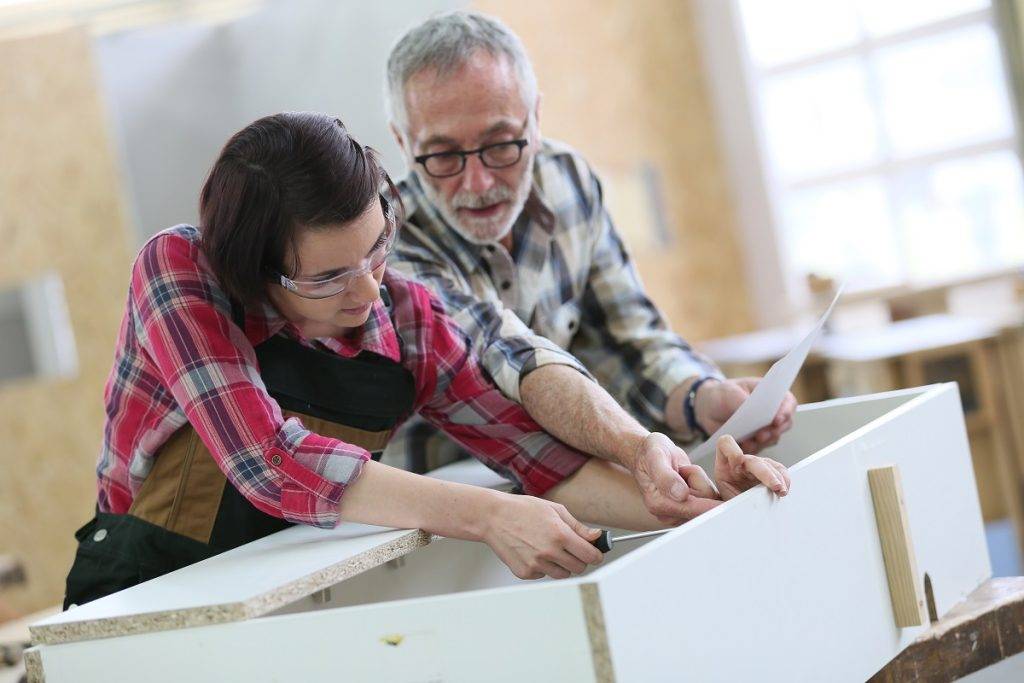News
Apprenticeship training and assessment
In the fourth of a series of blogs on how an apprenticeship programme can support growth and development at your business, Natalie Cole, coordinator of the Apprentice & Skills Plus service, writes about the the different types of training and how the apprentice is assessed.

During their apprenticeship an apprentice undertakes two different types of training, on-the-job and off-the-job training, which is followed by an end point assessment. For most apprentices, on-the-job training takes up 80% of their time and is delivered by the employer as part of the working day to help them perform the job they’ve been hired to do. It allows the apprentice to develop the skills and knowledge required while benefiting from the safety net of support provided by their managers and mentor. This training also covers skills that may fall outside of the apprenticeship but are needed for the job role.
The remaining 20% of the apprentice’s time is spent completing off-the-job training which is delivered during your apprentice’s normal working hours and is a legal requirement. This training will teach your apprentice the knowledge, skills and behaviours set out in the occupational standard so they can achieve their professional qualification and occupational competence. Off-the-job training delivers new skills that are directly relevant to the occupational standard and includes the teaching of theory, practical training, learning support and time to undertake assignments and develop their portfolio.
Off-the-job training can be flexible and doesn’t have to mean a day out of the workplace every week. The time is scheduled at the discretion of the employer and can be scheduled one day a week, during part of the working day or blocked out periods of time. It can take place at the workplace, at college or with a training provider, online or most likely a combination of these.

When the apprentice, employer and provider have determined that the apprentice is ready to complete the apprenticeship they will hold a final review meeting, to ensure the apprentice is ready for gateway to the end point assessment. End point assessment is the final stage of an apprenticeship. It is an impartial assessment of whether your apprentice has developed the skills, knowledge and behaviours outlined in the standard. Assessments are designed by employers in the sector and are conducted by independent bodies known as end point assessment organisations.
Each apprenticeship includes an end point assessment plan which describes how the apprentice will be tested against the criteria and what methods will be used. Typically, an apprentice will need to complete two or three assessments, including a practical assessment lasting two-three hours, an interview and a multiple-choice test. Copies of all available occupational standards and end point assessment plans are available to download from the Institute for Apprenticeships and Technical Education website.
If you would like to have a no obligation chat with Natalie about the benefits of apprenticeships and how to implement a programme, please email natalie@furnituremakers.org.uk. For more information about the Apprentice & Skills Plus service, complete the sign-up form below.
| Apprenticeship posts Part one – What are the benefits of apprenticeships? – The Furniture Makers’ Company Part two – What are the costs of taking on an apprentice? – The Furniture Makers’ Company Part three – What apprenticeships are available? – The Furniture Makers’ Company |

About Natalie Cole
Natalie Cole is skills plus coordinator, a role funded by The Furniture Makers’ Company and the Furniture and Interiors Education, Skills and Training Alliance. Natalie has 20 years’ experience in the sector. After studying Furniture Design & Technology at Buckinghamshire Chilterns University, now Bucks New Uni, she ran a small furniture design business for 10 years that combined small run batch production of domestic furniture and products as well as larger scale one-off commissions. Most recently, she has been teaching furniture and product design at Birmingham City University for past eight years.